“The noise was deafening. The heat was intense. I’d never seen anything like it”
– American photographer Janine Wiedel on her first visit to the industrial West Midlands
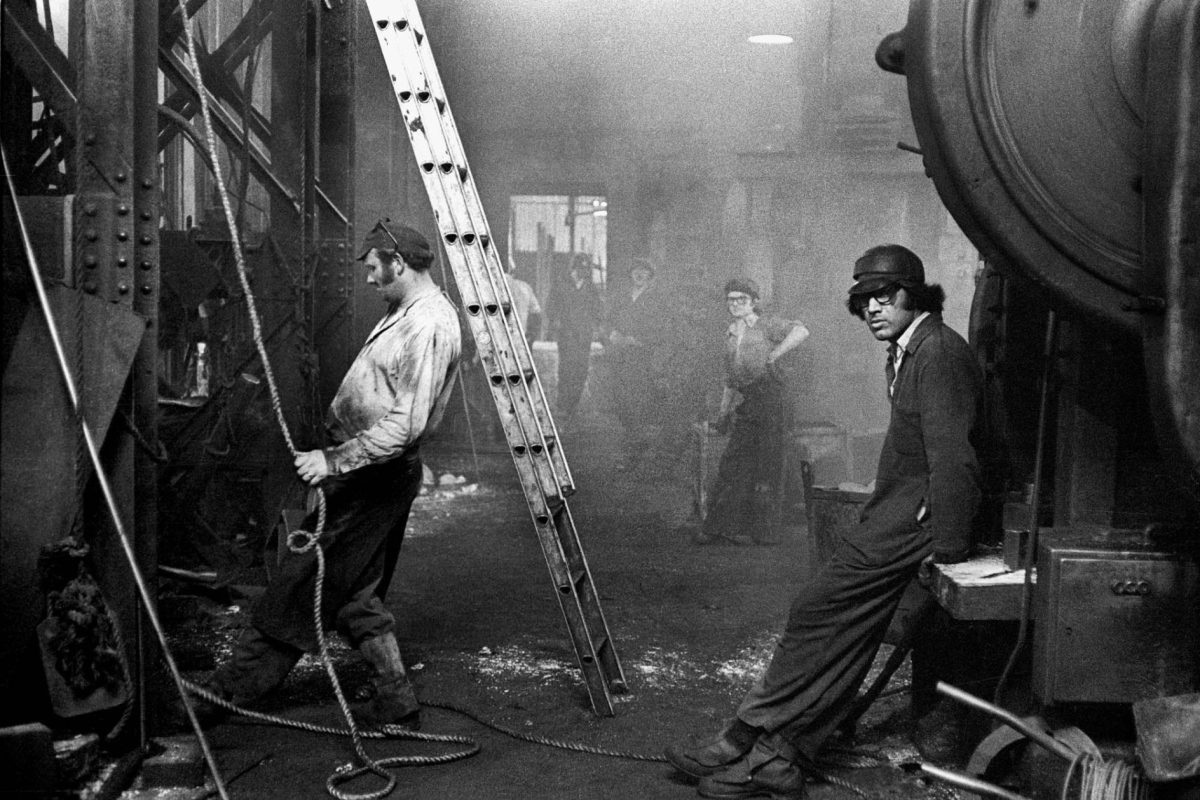
The Vulcan’s Forge photobook shows us faces of late 1970s industry in England’s West Midlands. Based on her 1979 exhibition at London’s Photographers’ Gallery, Janine Wiedel’s pictures are of working people at a time when their livelihoods were under severe threat in what was once the heart of the Industrial Revolution, the workshop of the world.
The fiery furnaces and mechanical sounds of the industrial West Midlands spawned heavy metal music. This is the place still known as The Black Country, a name rooted in the soot from the area’s heavy industries and the working of shallow 30ft thick coal seams. Elihu Burritt, the American Consul to Birmingham, in 1862 described the region as “Black by day and red by night”.
By 1977, when Wiedel arrived in the area from her native America on a bursary from West Midlands Arts to document local people, the region was in rapid decline. Competition from overseas had hurt the place after decades of underinvestment. Wiedel was recording end times. Many of the industries she photographed no longer exist.
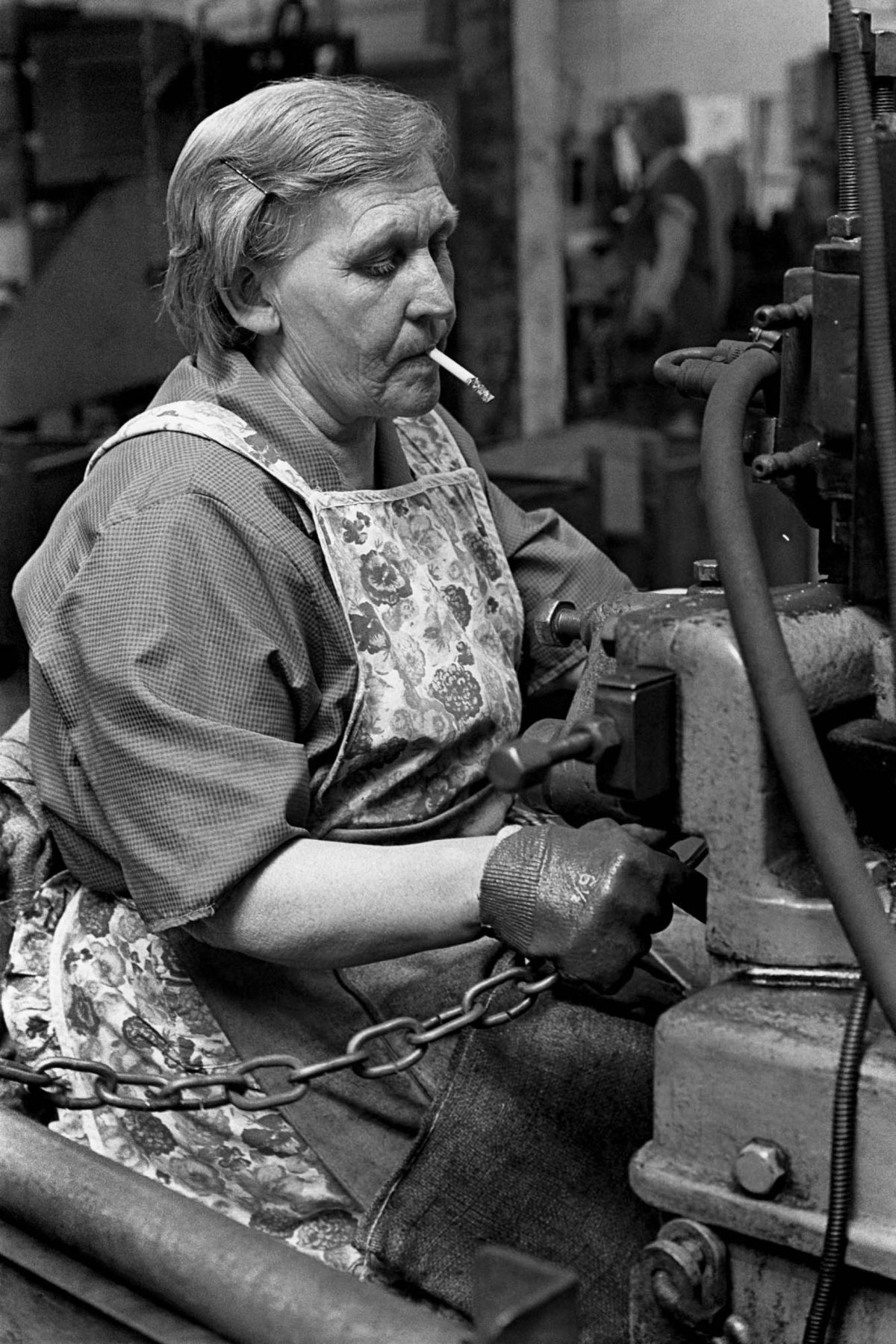
Janine Wiedel trained under Ansel Adams, photographed the Black Power movement in the late 1960s and the Berkeley People’s Park protest and riots of 1969. She arrived in England in 1970 and embarked on a series of long-term projects, including five years documenting Irish travellers.
Later subjects include the Greenham Common Women’s Camp, the multicultural community squat in St Agnes Place, London, and ethnic minority groups and Rastafarian communities in Brixton. More recent work includes six months of photographing life in the Calais ‘Jungle’.
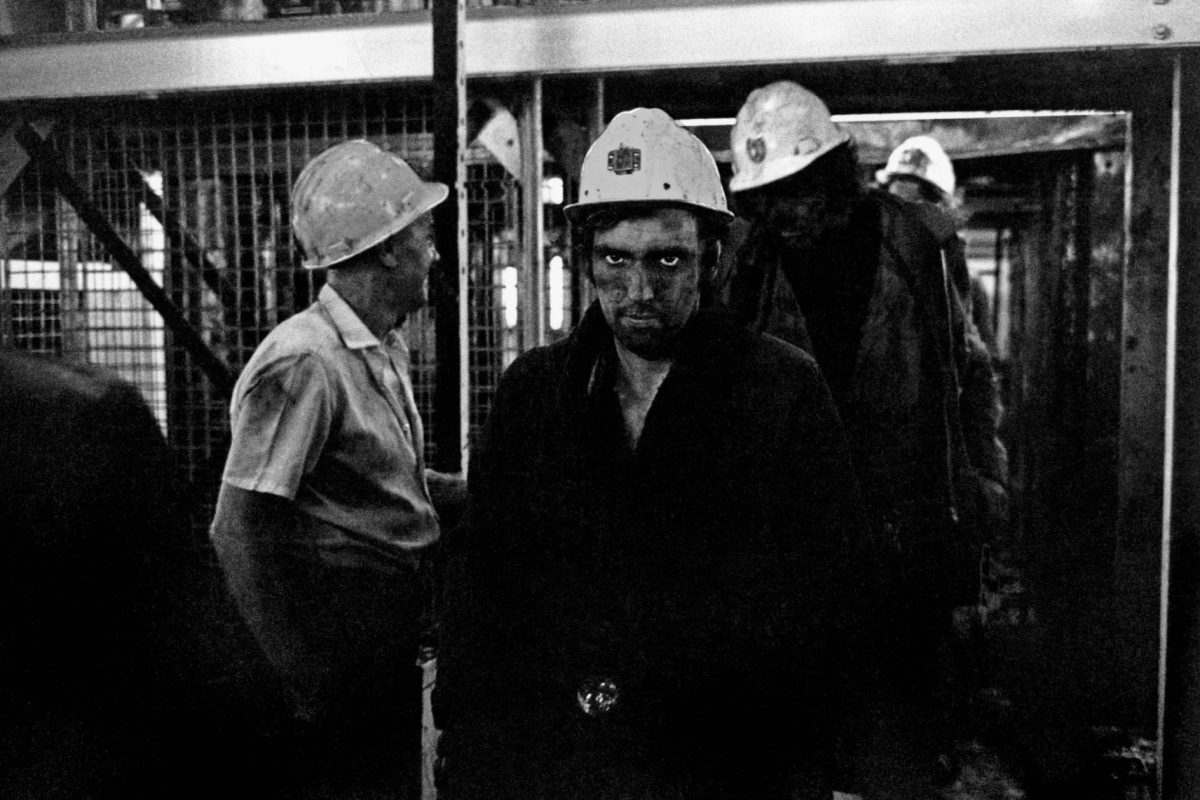
“I don’t think there was one person who said they didn’t want to be photographed. They were just pleased, I think, by the fact that someone was taking an interest in their jobs”
– Janine Wiedel

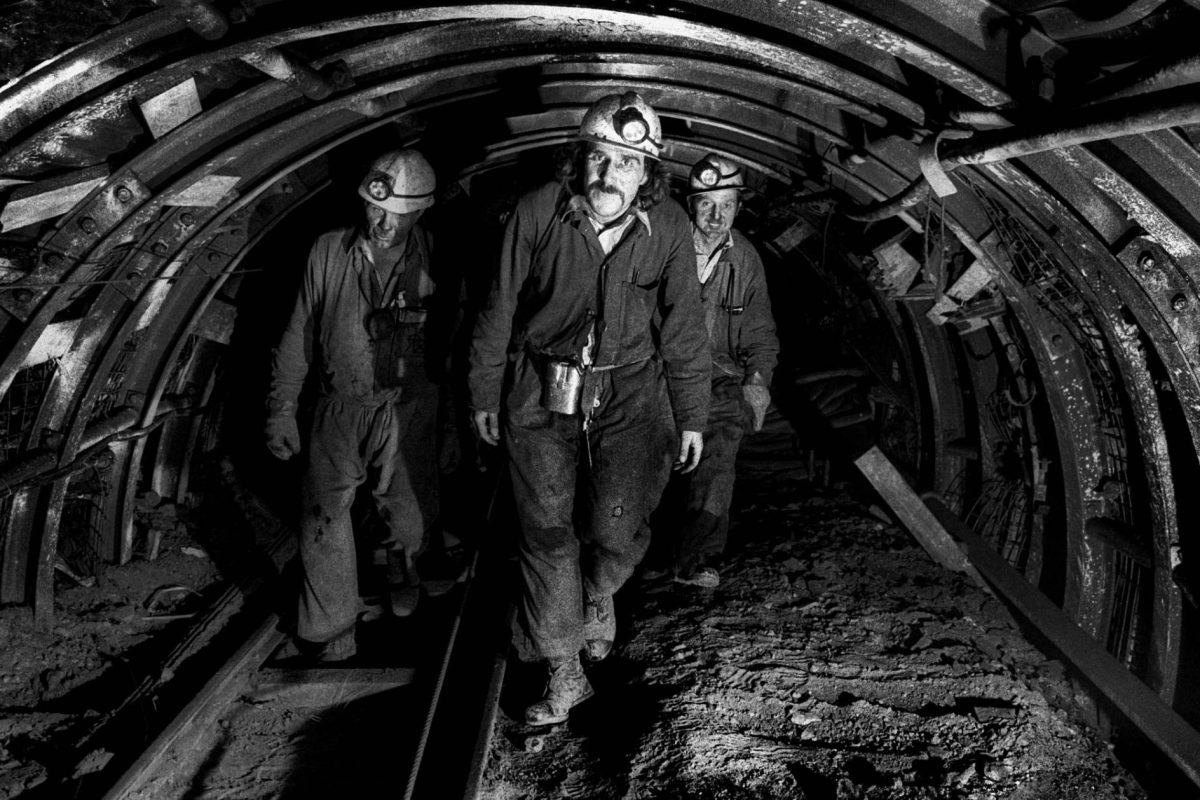
“I don’t think there was one person who said they didn’t want to be photographed. They were just pleased, I think, by the fact that someone was taking an interest in their jobs”
– Janine Wiedel
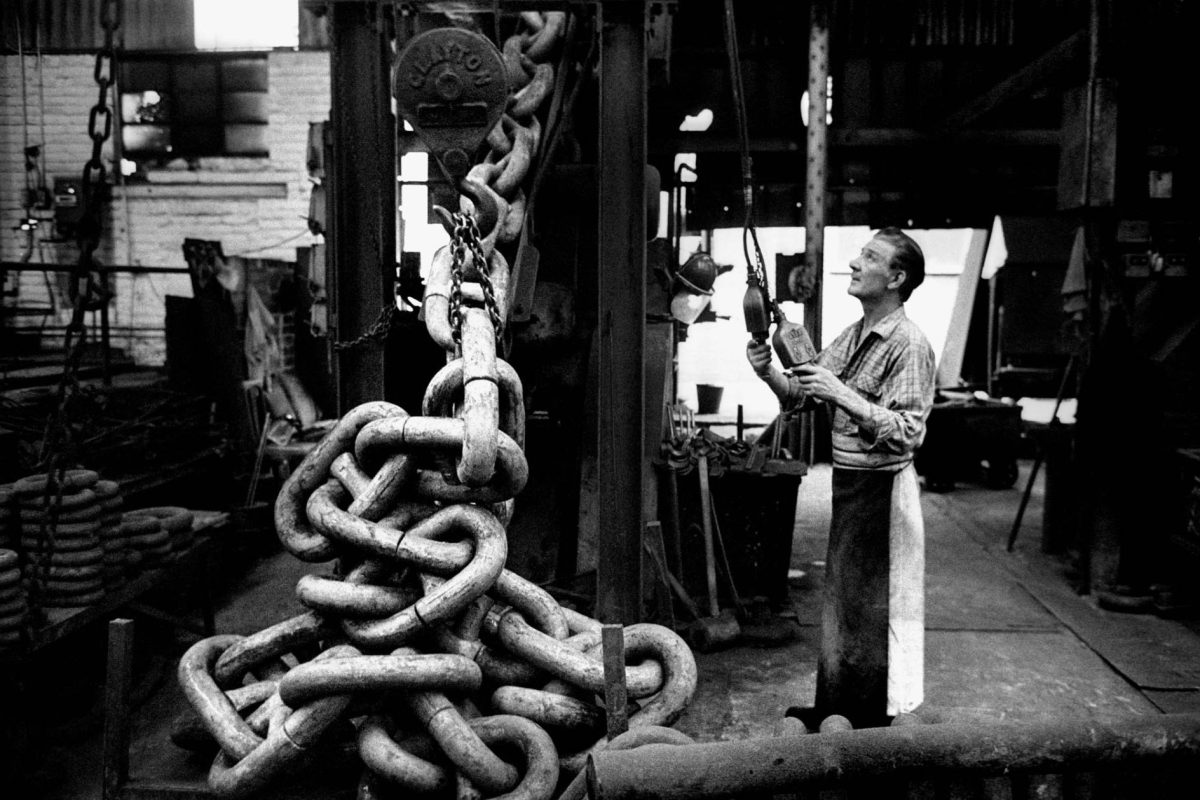
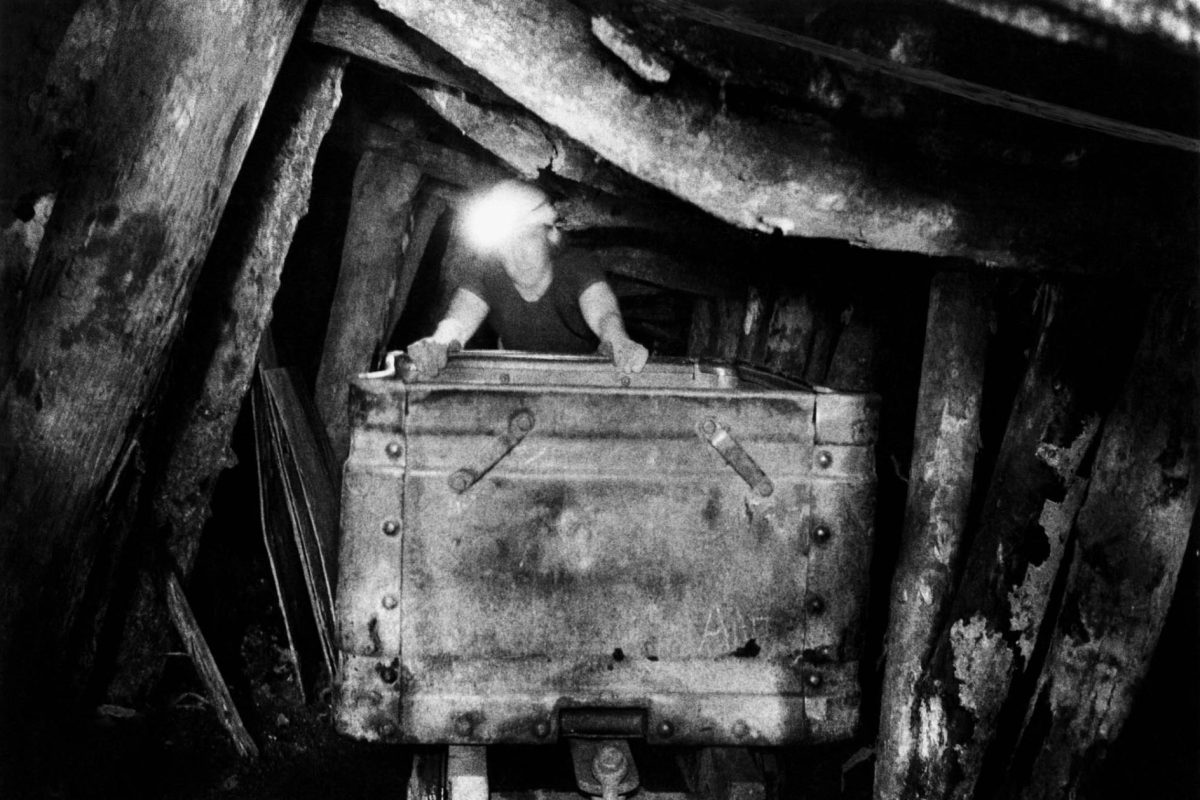
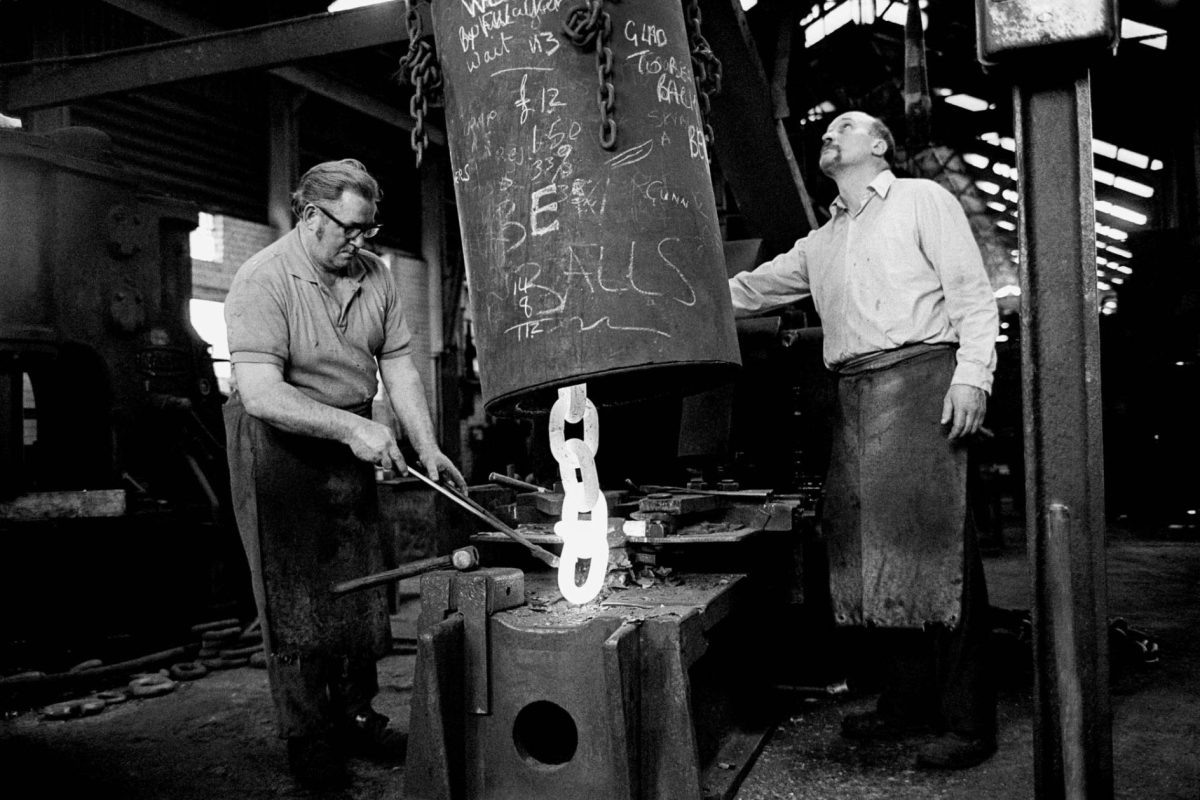
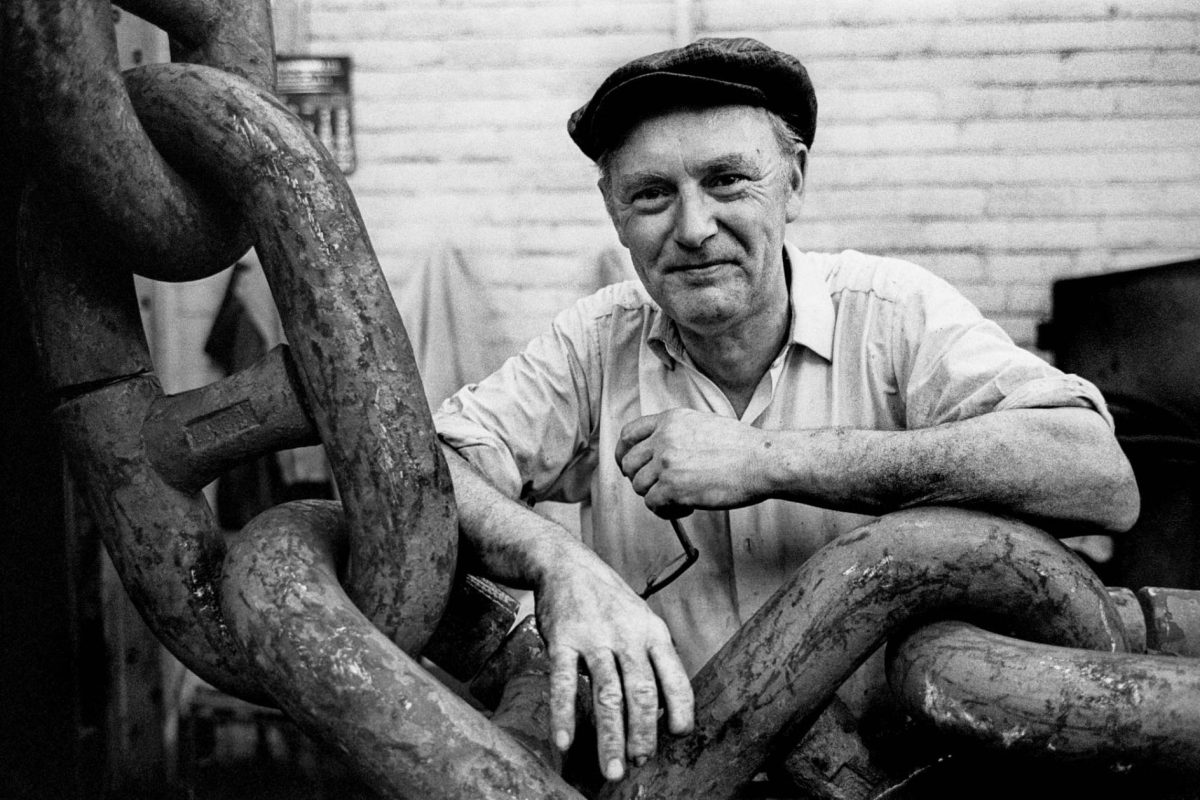
“I remember one woman saying to me, ‘Couldn’t you have got him to wear a suit?’ In those days, you might be photographed at your wedding and that was about it. Women didn’t know what their men looked like at work because they’d never been inside the forge or down the pit.
“It was important to record these lives. For me, it’s been great to give people back their history – that’s the best part of what I do.”
– Janine Wiedel
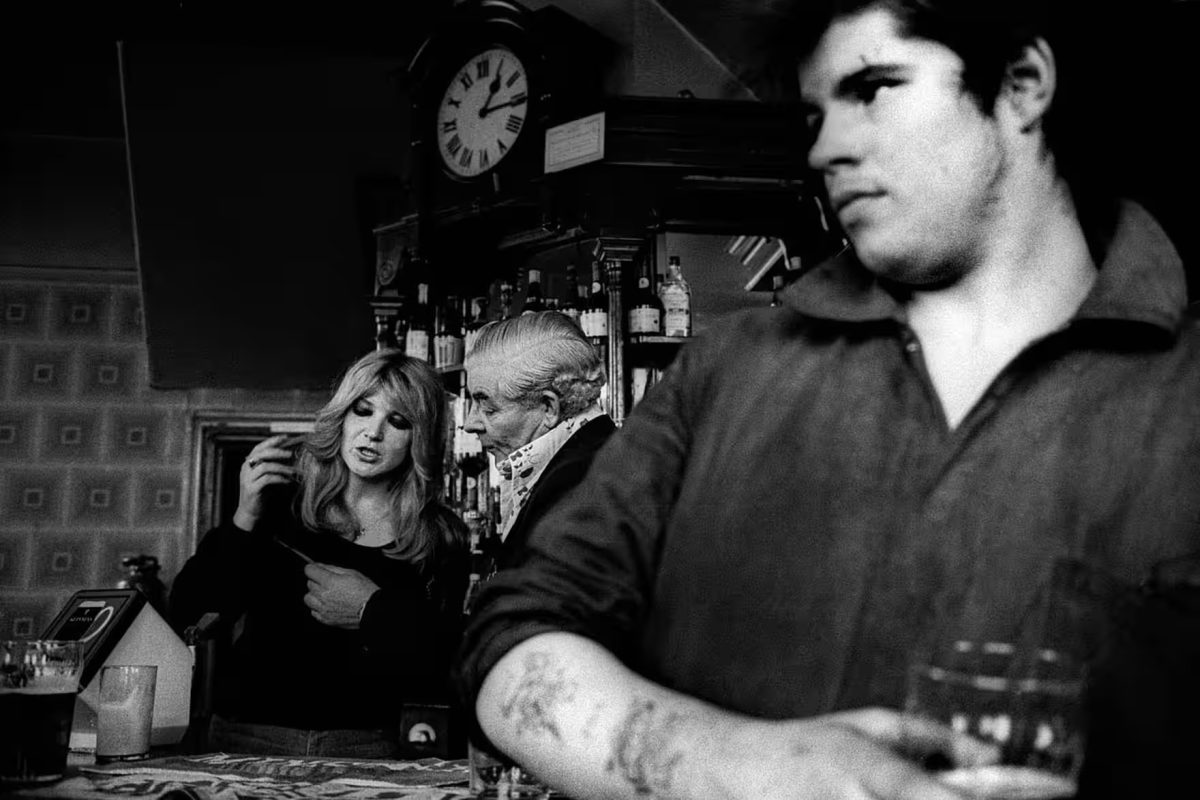
Lunchtime break at local pub after a morning shift at Smiths Forgings, Aston Birmingham 1977. Photograph- Janine Wiedel
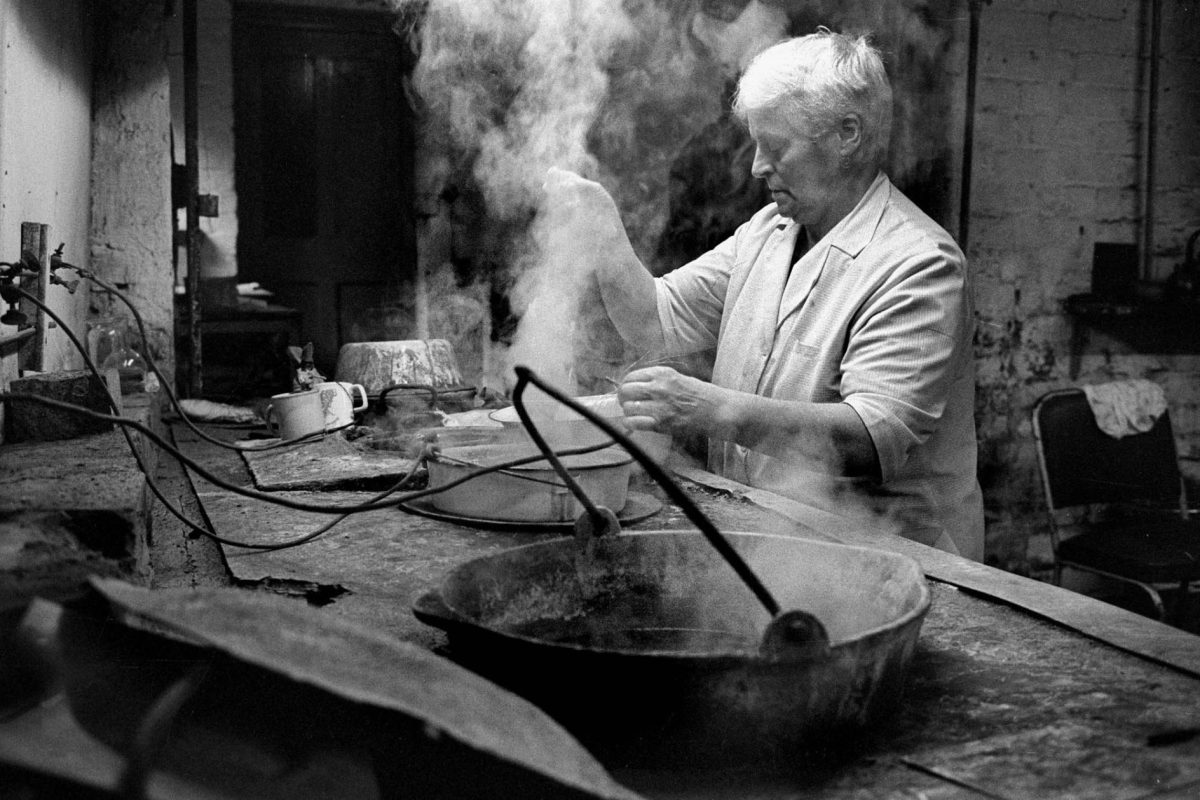
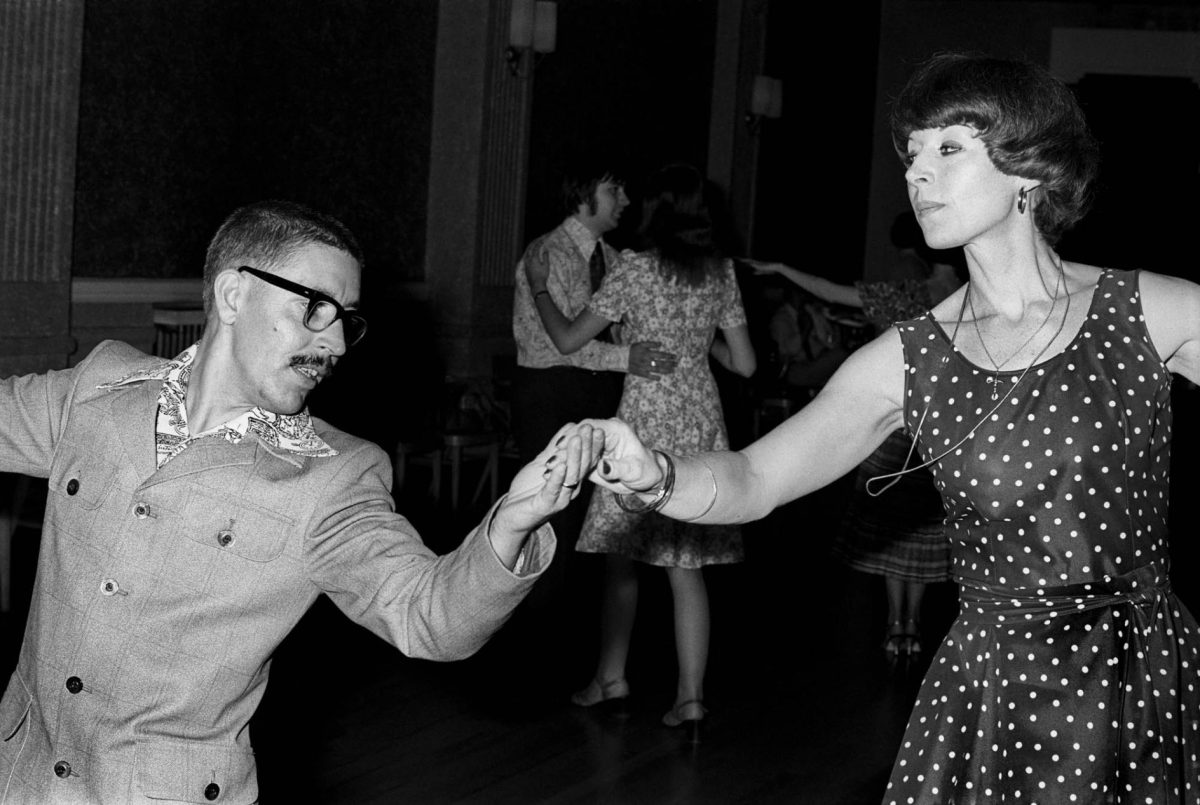
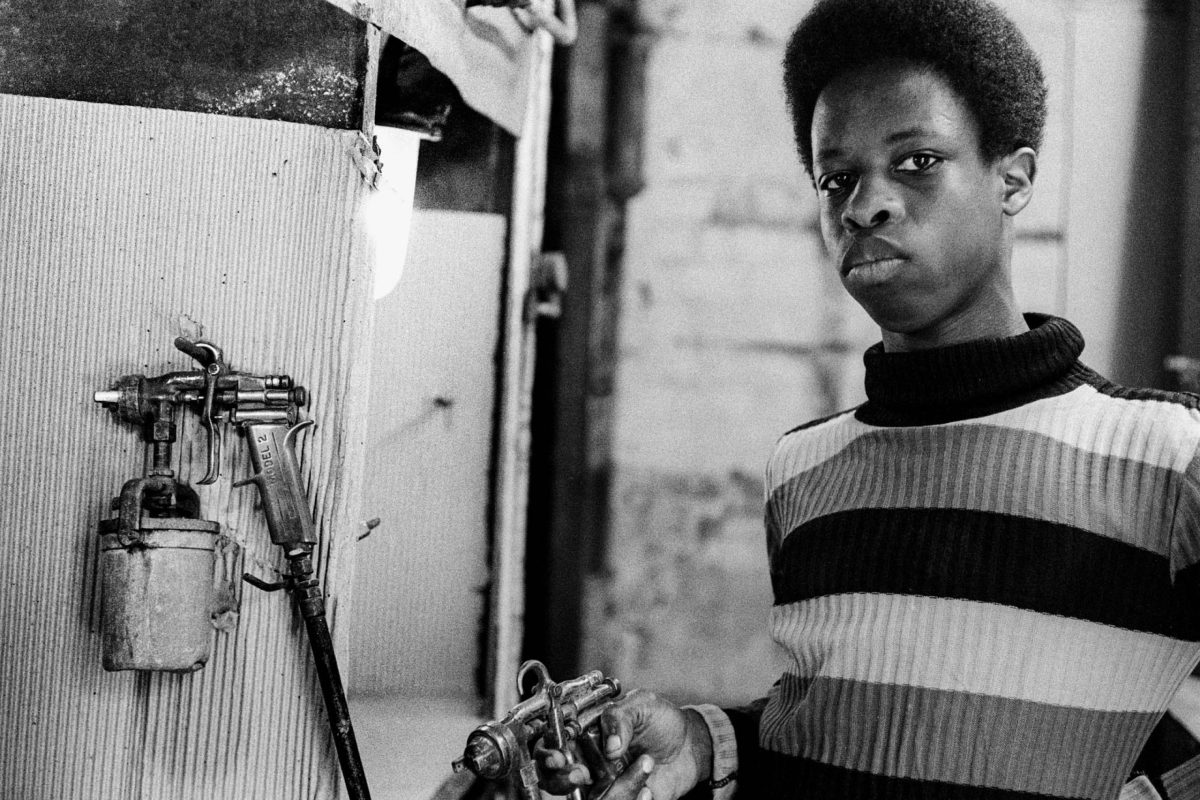
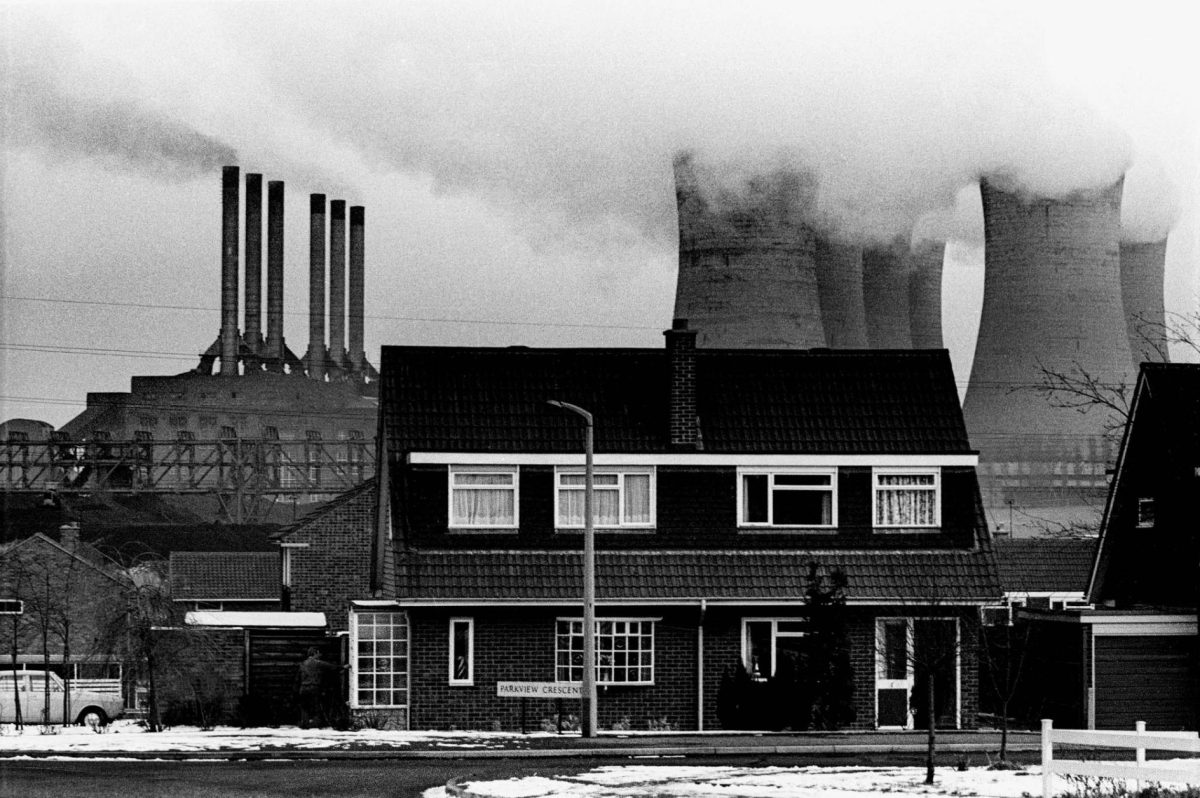
Lead image: The workshop at Smiths Drop Forge in Aston, Birmingham West Midland UK 1978 by Janine Wiedel.
Would you like to support Flashbak?
Please consider making a donation to our site. We don't want to rely on ads to bring you the best of visual culture. You can also support us by signing up to our Mailing List. And you can also follow us on Facebook, Instagram and Twitter. For great art and culture delivered to your door, visit our shop.











